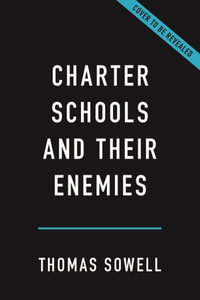Booktopia has been placed into Voluntary Administration. Orders have been temporarily suspended, whilst the process for the recapitalisation of Booktopia and/or sale of its business is completed, following which services may be re-established. All enquiries from creditors, including customers with outstanding gift cards and orders and placed prior to 3 July 2024, please visit https://www.mcgrathnicol.com/creditors/booktopia-group/

How The Other Half Learns
Equality, excellence, and the battle over school choice
Author: Robert Pondiscio
Read by: Robert Pondiscio
At a Glance
Published: 10th September 2019
Digital Audiobook
$29.99
Instant Digital Delivery to your Booktopia Reader App
ISBN: 9780593151846
ISBN-10: 0593151844
Published: 10th September 2019
Format: Digital Audiobook
Language: English
Publisher: Penguin Random House Audio Publishing Group
Duration: 11:32.49






